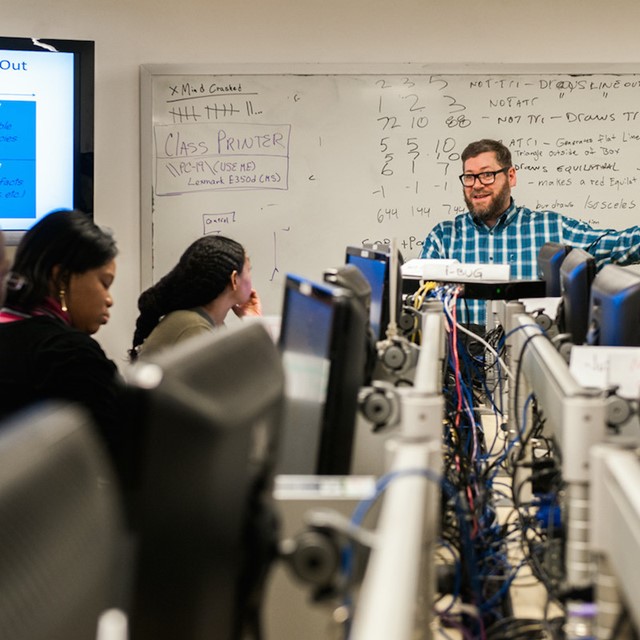
“Within four years of me starting this IT field, I went from fixing computers to managing networks. That was without an advanced degree.”
– Per Scholas graduate Vanessa Brown
The work will be challenging, but the return is promising: Complete a training course with Per Scholas, and you’ll be ready to move into a technology job that offers not only better pay and benefits but also a path to a career.
Per Scholas provides free IT courses for unemployed and underemployed adults, plus career coaching and business networking opportunities that help graduates find work. With training sites in seven locations around the U.S., this non-profit organization has graduated thousands of men and women.
 Michelle Pullaro
Michelle Pullaro
Michelle Pullaro is chief administrative officer for Per Scholas, overseeing operations and expansion. She shares her experience speaking to donors, employer partners and staff and her insight into the communication skills Per Scholas students need be successful.
How does public speaking fit into your work?
Pullaro: I frequently speak with corporate and private foundations, elected officials and employer partners, asking for significant investments to strengthen and scale our work. Proven outcomes and evidence-based results position Per Scholas as an industry thought leader in workforce development, but data can be challenging to discuss in an engaging way. Weaving data and stories of our graduates into presentations helps stakeholders better understand our mission and impact—bringing diverse talent into tech roles. Convincing an employer to rethink how they source talent and give non-traditional pipelines like us a closer look requires both narrative and evidence connected into a convincing discussion.
What’s been your biggest speaking challenge and how have you overcome it?
Pullaro: I used to invest considerable time drafting full scripts for speaking engagements, but I came to realize this process led to more stress than benefits and didn't allow for creative and engaging discussion. I have moved away from full scripts and focus on working from bullets. This has built my confidence and helped me develop flexibility and deeper understanding of my topics.
As an organization that trains people for tech jobs, what communication skills do you see your students most needing?
Pullaro: All of our students need the ability to communicate internally and externally at companies and at network events and meet-ups. Employers have made communication and customer service skills their hiring priorities. For example DevOps – software development and information technology operations, a position difficult for employers to fill--requires incoming hires to position themselves at the intersection of software development and IT professionals. Our graduates can internalize complex networking, programming and technical skills but maintain big picture knowledge and communication skills so that they can interface with multiple teams and customers.
Your top tip for making a better presentation?
Pullaro: Bring authenticity. When you use an example or story you can connect with personally, you’ve got the foundation of a great presentation. Tying stories to evidence and demonstrated impact is important, but you have to be able to capture your audience’s attention, get them to buy into your idea and then back it up.
This video gives you a look at how Per Scholas works:






